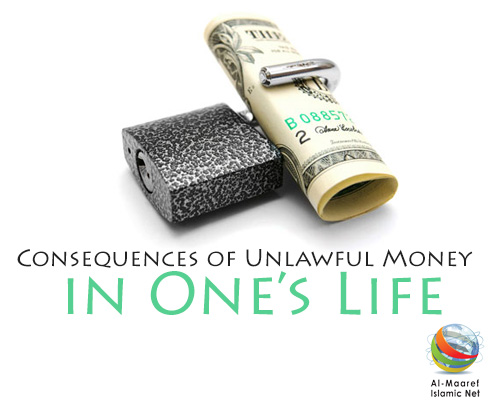The Most High God says,
﴾Behold, Luqman said to his son by way of instruction, “O my son! Join
not in worship (others) with God, for false worship is indeed the highest wrong
doing.”﴿1
Also, The Most High God says,
﴾…whoever expects to meet his Lord, let him work righteousness, and, in
the worship of his Lord, admit no one as partner.﴿2
1- What is meant by sincerity?
2- What are the levels of sincerity?
3- What are the fruits of sincerity in this life and in the hereafter?
Introduction
The human being’s existence in this life has an aim which can be summarized by
the attainment of the real happiness. This happiness is nothing but that the
human being fills his existence with all aspects of welfare and perfection,
satisfies his various needs, and guards himself from all aspects of poverty,
ignorance, and lack…
The human being is poor and needy, and every poor and needy looks for the rich
one who will drive poverty and need away from him. Since the human needs are
many and limitless, he is in need to someone who is rich with no poverty. And
that rich one is none but The Most Glorified and High God. The Most Glorious and
Reverent God says in His Book,
﴾O ye men! It is me that have need of God, but God is the One Free of
all wants worthy of all praise﴿3
Meeting The Most High God
﴾Join not in worship (others) with God, for false worship is indeed
the highest wrong doing﴿
When the poor, needy, and weak human being turns towards somebody else rather
than The Most High God, he will have greatly wronged himself because he will
have deprived himself of all the aspects of goodness, perfection, and happiness.
This is so because all rather than God are poor and needy; and he who is poor
can not supply for the need of him who is as poor as he is.
Let us set forth the following example: If a person is so thirsty, he will go to
the river or to the well of course, not to the mirage or to the illusion, in
order to satisfy his need. From here, it is considered from the levels of the
actual polytheism to turn away from The Most High God towards someone else in
order to lift the deficiency and to satisfy the need.
The aim is to meet God, and this can not be accomplished save by turning away
from polytheism. From here, it is recognized that it is from the aspects of
polytheism to forsake the real aim of the human being (i.e. meeting God) and to
choose the everlasting misery instead of the real happiness.
The Most High God says,
﴾But the unbelievers, their deeds are like a mirage in sandy deserts,
which the man parched with thirst mistakes for water; until when he come sup to
it, he finds it to be nothing: But he finds God (ever) with him, and God will
pay him his account: God is swift in taking accounts﴿4
It is related that Imam Abou Abdullah (God’s peace bestowed upon him) said,
“The Most Glorious and Reverent God says, ‘I am the best partner. He who joins a
partner to Me in any deed will have Me not accepting it save for the part that
is completely for my sake.”5
Reaching an Aim Can Be Accomplished Only by Sincerity
The Most High God says,
﴾…whoever expects to meet his Lord, let him…﴿
1-
﴾…work righteousness…﴿
2-
﴾…and, in the worship of his Lord, admit no one as partner﴿6
So that one will come to reach God, two conditions must be met. The first
condition is the righteous deed, and the second deed is the sincerity in the
performance of deeds.
An illustrative Example: Suppose that there is a man who wants to travel to a
specific country, it is indispensable that several conditions must be available:
1- Accurately specifying the aim, for example: Noble Kaaba
2- Moving towards the aim by means of exerting effort and enacting the required
steps along the path of the aim
3- Heading towards the aim while carrying out the steps, so that no one will
head towards another aim
What Is Meant by Sincerity
Sincerity means directing the intention towards the aim and not turning towards
any other aim. In one narrative, it is related that Jibrael (God’s peace
bestowed upon him) came to The Prophet (God’s prayers and peace bestowed upon
him and his Household) and said, “O God’s prophet! The Most Glorified and
High God sent me to you with a gift which He has not given to anybody before
you.” God’s prophet (God’s prayers and peace bestowed upon him and his
Household) said, ‘I asked him, ‘What is it?’ Jibrael (God’s peace be bestowed
upon him) answered, ‘It is patience, yet there is still what is better.’ I
asked, ‘What is it?’ He answered, ‘It is pleasure, yet there is still what is
better.’ I asked, ‘What is it?’ He answered, ‘It is asceticism, yet there is
still what is better.’ I asked, ‘What is it?’ He answered, ‘It is sincerity, yet
there is still what is better.’ I asked, ‘O Jibrael! What is the illustration of
sincerity?’ He answered, ‘The sincere one asks nothing from the people yet he
labors hard. And when he finds [his need], he is pleased. And when anything
remains with him, he offers it for God’s sake. He who does not ask anything from
the creatures and he has acknowledged his slavery for The Most Glorious and
Reverent God. And when he finds his need, he is pleased: He is pleased with God,
and The Most Glorified and High God is pleased with him. And when he offers for
the sake of The Most Glorious and Reverent God, he is greatly trustful in his
God, The Most Glorious The Most Reverent…’”7
Levels of Sincerity
Sincerity is a definition for man’s relationship to his God. The Prince of the
Believers (God’s peace bestowed upon him) summarized this relationship which is
based on worship in his saying, “If people worship God on the basis of
wishes, it will be the worship of merchants. If people worship God on the basis
of fear, it will be the worship of the slaves. And if people worship God on the
basis of thanks, it will be the worship of the free ones, and this is the best
worship.”8
Sincerity, therefore, is of three levels:
1- The work for the sake of heaven (The worship of merchants)
2- The work due to the fear of fire (The worship of slaves)
3- The work wanting and loving God (The worship of the free ones)
The Fruits of Sincerity
1- Bequeaths Wisdom: It is related that Imam Ali Al-Rida (God’s peace
bestowed upon him) said, “Every servant who worships God sincerely for forty
mornings will have the fountains of wisdom flowing from his heart to his
tongue.”9
2- Bequeaths Asceticism in This Life: It is related that Imam Abou Jaafar
Mohammad Al-Baqer (God’s peace bestowed upon him) said, “Every servant who
believes in The Most Glorious and Reverent God sincerely for forty days will
have The Most Glorious and Reverent God making him ascetic in this life and
recognize its disease and cure; and will have Him fixing the wisdom in his heart
and making his tongue talk with wisdom.”10
3- Grants Him His Best Welfare: It is related that Sayyda Fatima Al-Zahraa
(God’s peace bestowed upon her) said, “He who sends up to God his sincere
worship will have The Most Glorious and Reverent God sending down to him his
best welfare.”11
4- Receives the Love of The Most High God: It is related that Houthayfa
bin Al-Yaman said, “I asked God’s prophet (God’s prayers and peace bestowed upon
him and his Household) about sincerity. He said that he asked Jibrael about it,
and the latter said that he asked The Most High God about it, and He said,
‘Sincerity is a secret of Mine which I deposit in the heart of whom I love.”12
For Reading
It is related that Imam Ali (God’s peace bestowed upon him) said,
“Sincerity is the most honorable end.”
“Sincerity is an aim.”
“Sincerity is the aim of religion.”
“Sincerity is the worship of those who are close to God.”
“Sincerity is the criterion of worship.”
“Sincerity is the highest level of belief.”
“Sincerity is the characteristic of the noblest ones among the people.”
“It is in the sincerity of deeds that those of understanding and prudence
compete.”
“It is in sincerity that the salvation lies.”
1- The Noble Qur'an/
Luqman Chapter/ Verse 13
2- The Noble Qur'an/ Al-Kahif [The Cave] Chapter/ Verse 110
3- The Noble Qur'an/ Fatir [The Originator] Chapter/ Verse 15
4- The Noble Qur'an/ Al-Nour [The Light] Chapter/ Verse 39
5- Mustadrak Al-Wasael [Making Up for the Means]/ Part One/ Page 100
6- The Noble Qur'an/ Al-Kahif [The Cave] Chapter/ Verse 110
7- Yanabeeaa Al-Hekma [The Fountains of Wisdom]/ Part Two/Page 240
8- Tafseer Al-Meezan [The Illustration of the Standard]/ Part One/ Page 37
9- Bihar Al-Anwar [The Seas of Lights]/ Part Sixty Seven/ Page 243
10- Bihar Al-Anwar/ Part Fifty Three/ Page 226
11- Saheefat Al- Zahraa [The Book of Al-Zahraa]/ Page 294
12- Mustadrak Al-Wasael [Making Up for the Means]/ Part One/ Page 101




















